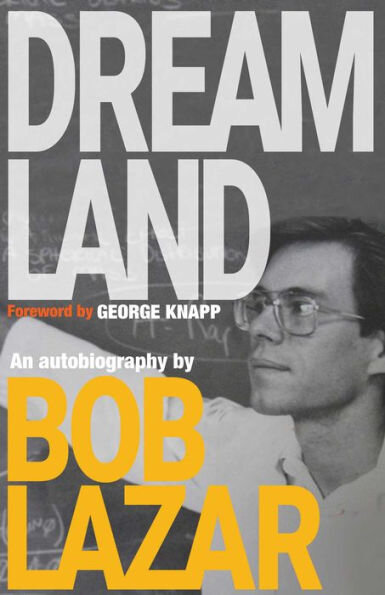(Handout)
Bob Lazar’s extraordinary claims (true or false) aren’t going anywhere, but his larger-than-life story is now more prominent than ever. In Lazar’s autobiography “Dreamland” he makes a strong case for the “true” side of the argument with his story told in his own words through his personal narrative, anecdotes and writing well-versed in the scientific subject matter he has been involved in.
Lazar’s claims to have been a part of a group that worked on attempting to back-engineer UFOs in Area-51, as well as his educational/ employment credentials are heavily debated to this day in UFO circles. His story has been chronicled for years, but recently became part of the conversation again with Jeremy Corbell’s “Bob Lazar: Area-51 & Flying Saucers” doc hitting Netflix, as well as the mainstream press that followed. Tom DeLonge’s To The Stars put out “Dreamland,” but were quick to release it under a TTS imprint Interstellar books, and carefully provided a disclaimer that tried to distance To The Stars Academy of Arts and Science from any of the negativity associated with Lazar’s story.
Lazar’s polarizing story is intriguing as it is, but the best proponent of his claims comes in the form of the forward from award-winning journalist George Knapp. Knapp’s foreword is a must-read for any UFO researcher, hardened skeptic of Lazar or anyone with general interest in how journalism works, as it is a perfect lesson in objectivity, fairness and leg work that should be applied to any given story.
Does “Dreamland” answer all the questions, and end the validity debate about Lazar? No, and there are plenty of questions that remain, but it does provide Lazar’s alleged first-hand account from a man who did not want the attention, but ultimately the very nature of the story demanded the spotlight to be placed on him. Lazar details the toll the experience had on his professional and personal life, which could best be described as a time of paranoia, scientific frustration, harassment, and an emotional of betrayal , hurt and strife. There’s times you feel empathetic of his claims, and there are moments in the book that need to be answered. His rebellious actions , while admirable and brave , ultimately were selfish and costly in long run to him and his research. The book ends when Lazar went on camera to come clean about his work at S4, and there’s much more to his story, but “Dreamland” provides ample accounts to explain why Lazar is such an intriguing figure.
-By MIKE DAMANTE

